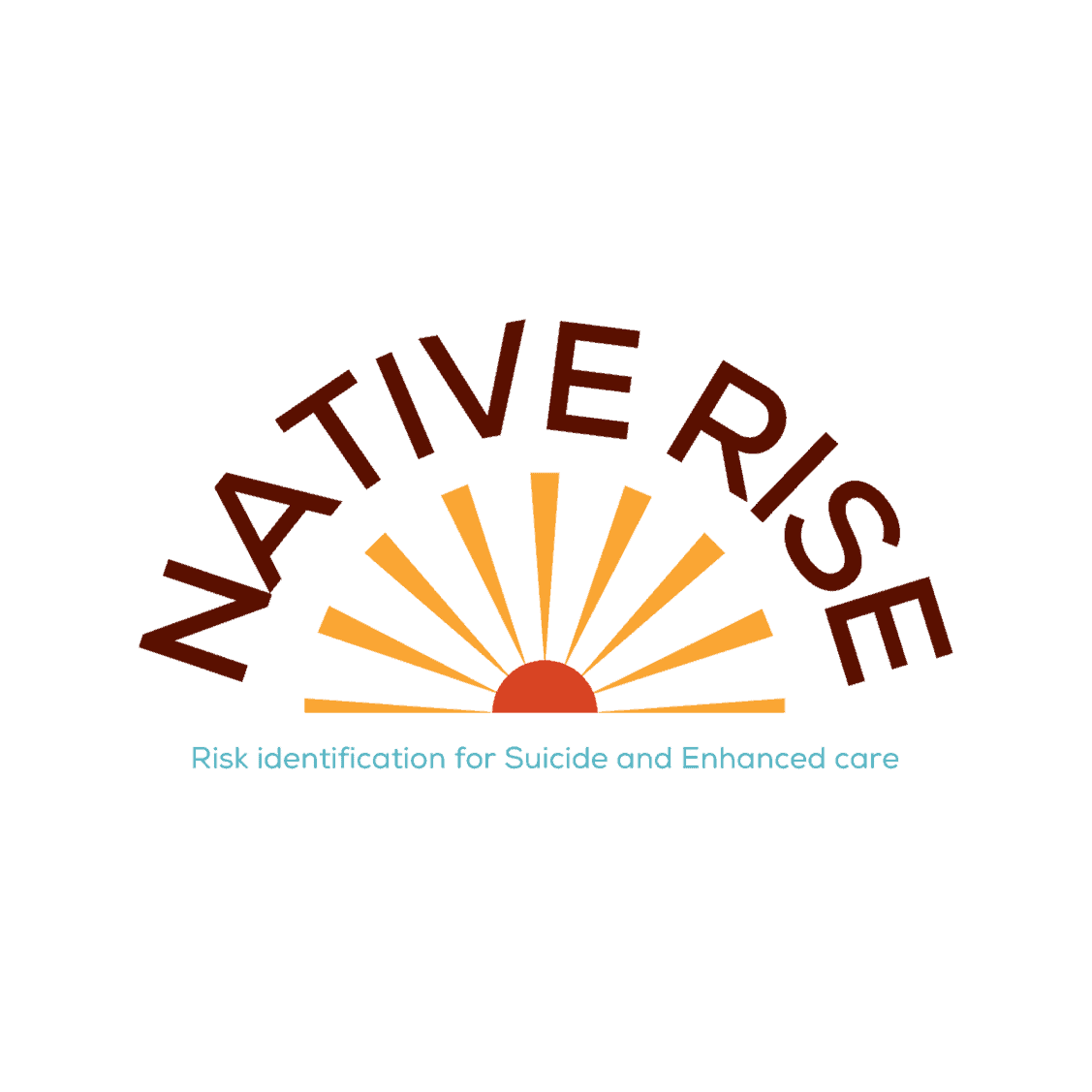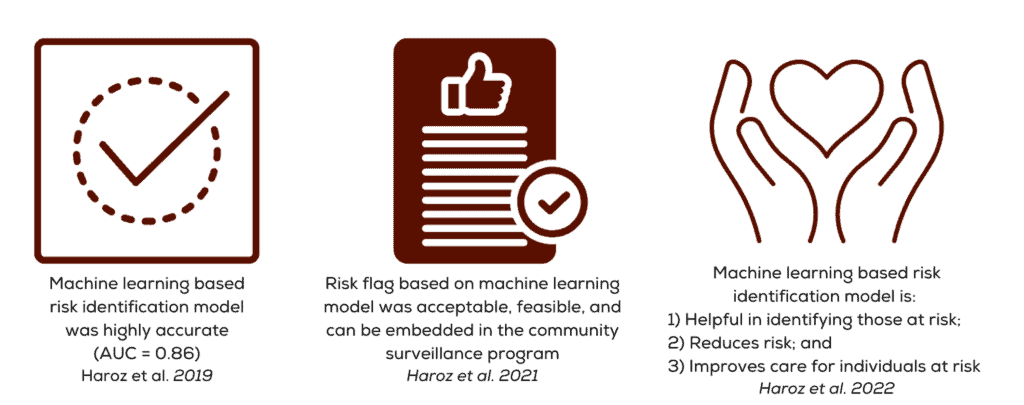
Background
Native Americans experience suicide rates that are 3.5 times higher than the general population, a disparity that has worsened during the COVID-19 pandemic. This disparity is rooted in a legacy of colonization, attempted genocide, historical trauma, and ongoing injustices. To address this, Native American communities have exercised their sovereignty to support some of the most innovative, practical, and effective approaches to suicide prevention.
In 2017, the White Mountain Apache Tribe and the Johns Hopkins Center for Indigenous Health (CIH) partnered to figure out how the Celebration Life program, a local suicide surveillance and case management system, could ensure it reached individuals at highest risk with the right kind of care. As part of this work, CIH conducted pilot work to assess the accuracy, acceptability, and feasibility of Native-RISE. Native-RISE uses machine learning methods to enhance risk identification and reduce provider burden through risk stratification. Initial findings from this approach showed a high level of accuracy, acceptability and feasibility, and led to reduce risk for the highest risk individuals (see below).

Next Steps for NATIVE-RISE
This project aims to prove the effectiveness and scalability of Native-RISE within three tribal health care clinics with experience implementing case management services for suicide risk and serving the White Mountain Apache Tribe and Navajo Nation. This proposal builds on our team’s historic Memorandum of Understanding (MOU) with Indian Health Service (IHS) and our decades-long CBPR trust-relationships with tribes. Specific aims of the project are:
Aim 1: Develop and implement a machine learning model for suicide risk (Native-RISE) across three rural tribal healthcare settings;
Aim 2: Determine the effectiveness of Native-RISE at improving the reach of evidence-based suicide prevention services; and
Aim 3: Understand the costs associated with implementing Native-RISE to inform sustainability, dissemination, and scaling.
During Aim 1, we will work with each service unit to implement the model. For Aim 2, IHS providers will be asked to complete periodic surveys and refer patients to CIH’s community-based teams. Aim 3, will track costs associated with activities in Aim 2.
If results are achieved, Native-RISE will become an effective and scalable approach that improves services to prevent suicide among Native American communities and advances our understanding of how to implement predictive analytics and more personalized care for suicide prevention.
Study Contact
If you have questions about this study, please reach out to the Principal Investigator, Dr. Emily Haroz, at eharoz1@jhu.edu or (410) 449-0051.